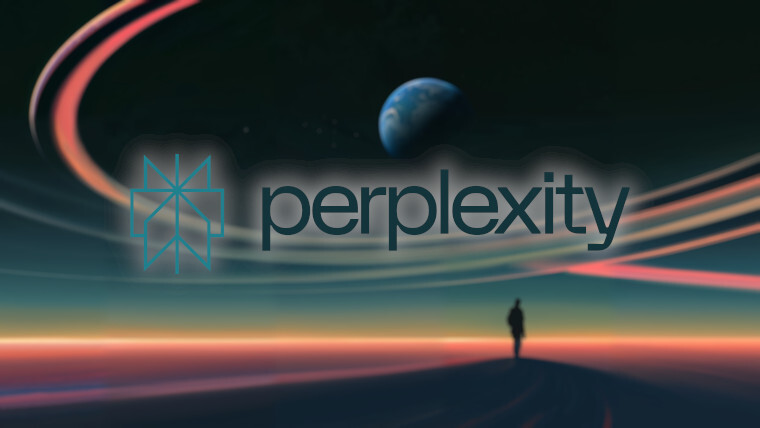AI search startup Perplexity has seen its valuation rocket to $18 billion in secondary market trading, a stunning 29% leap from the $14 billion figure it secured just two months ago. This surge, reported on July 17, highlights intense investor confidence fueled by the company’s aggressive expansion.
The new valuation, based on private share sales, underscores a period of hypergrowth for the Google challenger. It reflects strong demand for its stock among private investors and employees. This rise is powered by a strategy combining rapid product development with massive user acquisition plays.
A Meteoric Rise to an $18 Billion Valuation
Perplexity’s financial trajectory has been extraordinary. Backed by investors like Jeff Bezos and Nvidia, the company’s valuation has exploded 35-fold in less than 18 months, climbing from just $520 million in early 2024.
The latest $18 billion figure follows a $500 million funding round in May 2025 that valued the firm at $14 billion. This rapid appreciation signals that the market sees immense potential in its challenge to the search incumbents.
This growth is backed by solid business metrics. Perplexity has reportedly achieved nearly $100 million in annual recurring revenue (ARR). It also processed over 780 million search queries in May 2025 alone, demonstrating significant user adoption and market traction.
Building an Ecosystem Beyond the Answer Engine
A key driver of this momentum is an aggressive product expansion aimed at building a competitive ecosystem. The strategy is to move beyond its origins as an “answer engine” and create a suite of indispensable tools that lock in users.
On July 9, Perplexity officially launched its AI-native ‘Comet’ browser. CEO Aravind Srinivas announced the launch, stating, “we’re excited to finally release our next big product after launching Perplexity in 2022: Comet.”
The browser, initially for premium subscribers, aims to be a “thought partner” that redefines web navigation. It features an integrated AI assistant designed to understand on-page context, summarize articles, and answer questions without leaving the page.
Srinivas has directly challenged the market leader, promising “core browsing improvements that Chrome hasn’t shipped for ages” with Comet. This move places Perplexity in direct competition with Google Chrome, signaling its ambition to control the entire user experience.
Further expanding its productivity suite, the company unveiled ‘Perplexity Labs’ in May. This platform functions as an AI-driven “team” to automate complex projects like reports, financial spreadsheets, and even simple web applications.
Aggressive Growth Through Partnerships and Premium Plans
Perplexity is pairing its product development with a massive user acquisition strategy. Today the company announced a landmark partnership with Indian telecom giant Airtel. The deal offers a free one-year Pro subscription to all 360 million of its customers.
This strategic giveaway in a key global market is a direct challenge to Google, which recently launched a similar free offer for students in India. It provides Perplexity with an enormous distribution channel in the race for AI adoption.
This follows an April deal with Motorola to pre-install its AI assistant on new Razr phones. Srinivas characterized the deal as focused on user acquisition over revenue. He explained, “we’re not making money off their sales or anything like that. We’re looking for usage… it’s like a win-win for both of us,” framing it as a mutually beneficial arrangement.
However, the Motorola partnership also highlighted the challenges of competing with Google. Testimony during an antitrust trial revealed that existing contracts prevent Perplexity from being the default assistant on the devices.
To monetize this growing user base, Perplexity is rolling out high-end subscription tiers. On July 3, it launched the ‘Perplexity Max,’ a $200/month plan that offers unlimited Labs access and early use of new products like the Comet browser.
Navigating Competition and Controversy
This premium strategy mirrors moves by competitors like OpenAI and Google, creating a clear division between casual users and high-value enterprise customers. It is a crucial financial maneuver for a startup under pressure to justify its soaring valuation.
Despite its momentum, the company faces headwinds. An April security audit by Appknox flagged critical vulnerabilities in Perplexity’s Android app, labeling it “unsafe”. Appknox CEO Subho Halder warned, “our testing highlights critical vulnerabilities in Perplexity AI that expose users to a variety of risks… It’s crucial for the developers to address these issues swiftly,” urging swift action.
The company has also faced scrutiny over its data practices, including past allegations of aggressive web scraping and ignoring publisher protocols, which the company has denied.
While pushing the boundaries of AI, CEO Aravind Srinivas has also injected a dose of realism. He has publicly cautioned against industry hype, stating, “anyone saying agents will work in 2025 should be skeptical,” acknowledging the significant technical hurdles that remain for creating truly reliable AI agents.

